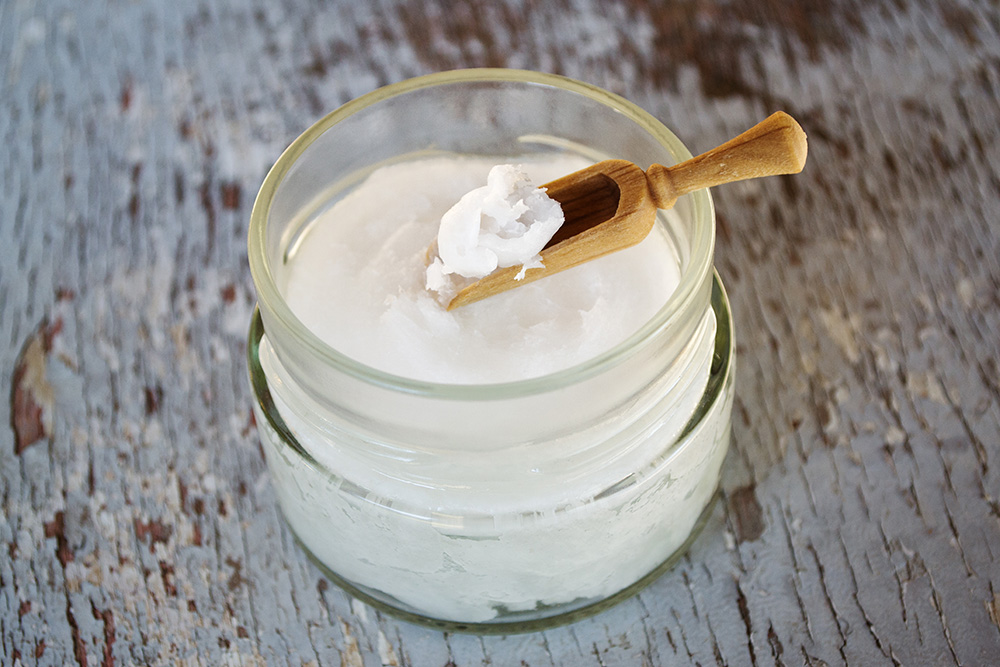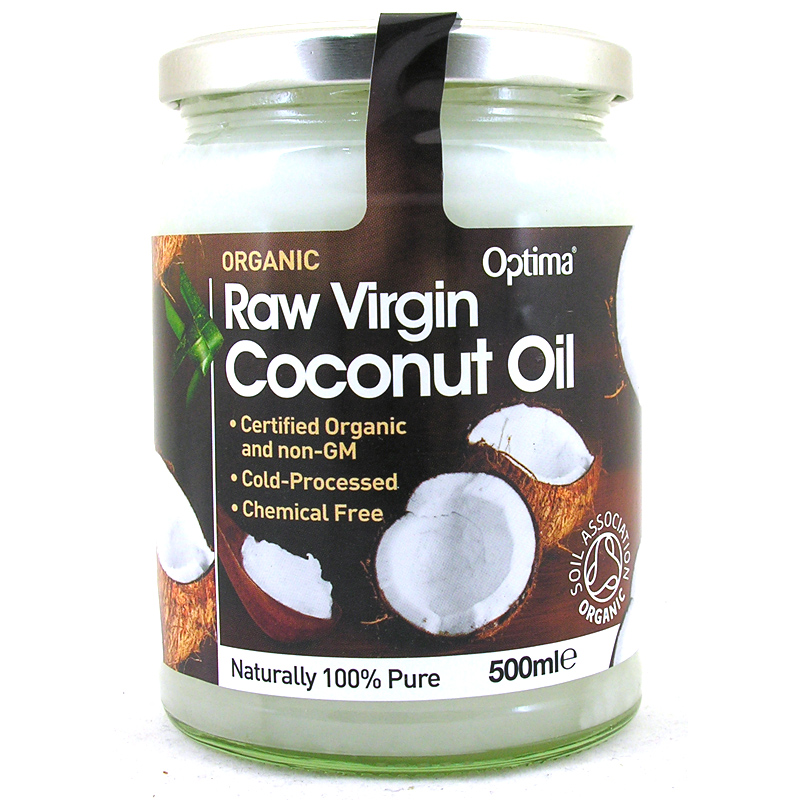
Few other health foods are more controversial than the humble coconut oil. It has as many wondrous claims as warnings against consuming it. The World Health Organization (WHO), American Heart Association, and the Food and Drug Administration (FDA) advises against regular consumption of coconut oil. On the other hand, proponents swear by the impressive health benefits of this wonderful superfood. A google search about the benefits of coconut oil will return thousands of pages claiming that coconut oil can do everything from clearing your acne to acting as a natural moisturizer for your dry skin.
How much do we really know about coconut oil and how should we use coconut oil in order to reap the most benefits without suffering from adverse effects? I wrote this article with the aim to bring a balanced view about coconut oil and how we can reap the most benefits from this health food.
What is Coconut Oil Really?
Coconut oil is an edible oil extracted from the kernel of mature coconuts harvested from coconut palms. It is slow to oxidize and, thus, resistant to rancidification – it lasts up to six months at 24 °C without spoiling.
It is one of the richest sources of saturated fat known to man, with almost 90 percent of the fatty acids in it being saturated. Half of the fats are in the form of Lauric Aid.
Myth or Fact: Debunking Common Health Claims of Coconut Oil
Previously shunned by the health community for its high saturated fat content, coconut oil has experienced a surge in sales and has taken the internet by storm for its possible health benefits. But are these claims true? Let us take a look at some evidenced-back studies that were conducted in recent years.
 Myth: Coconut Oil Reduces the Risk of Heart Attacks
Myth: Coconut Oil Reduces the Risk of Heart Attacks
Claims that cococut oil helps reduce heart disease are so rampant that the New Zealand Heart Foundation commissioned Dr. Laurence Eyres, New Zealand’s leading specialist in oils and fats, to prepare an academic paper called “Coconut Oil and the Heart” to examine the impact of coconut oil on heart health provide recommendations on its use as part of our diets.
Unfortunately, Dr Eyres concluded that consuming coconut oil raises cholesterol – HDL, LDL and total cholesterol (TC). While coconut oil does not raise TC and LDL as much as butter, it rasied them more than vegetable oil and unsaturated plant oils (e.g. olive oil). Another recent study drew similar conclusions.
“Traditionally, coconut oil hasn’t been recommended because it is extremely high in saturated fat. This advice remains, despite the large number of marketing claims to the contrary.” says Dr. Eyres.
Coconut oil raises both HDL and LDL, but the problem with many of the studies is that they did not measure HDL, or good cholesterol, which protects against heart disease. Another study which measured the HDL levels did not say anything about the LDL levels! (*rolls eyes)
Hence, at present, before more comprehensive studies are conducted, it is not advisable to replace unsaturated cold pressed oils, such as olive oil and canola oil, with coconut oil.
Truth: Coconut Oil Helps You Lose Weight And Inches Off your Waist
A search on the internet shows that the recommended method for weight loss using coconut oil is to consume up to 3.5 tablespoons of it throughout the day.
Coconut oil is high in medium chain triglycerides (MCT) and fatty acids that boost metabolism. Several studies have shown that just by adding coconut oil to your diet, you can burn fat, especially the stubborn fat in the abdominal cavity and around the waist.
Not all calories are the same. Different types of food go through different metabolic pathways. Some metabolic pathways are more efficient than others and some require more energy to digest and metabolize. Coconut oil is thermogenic. Compared to other fats, you need more energy to metabolise coconut oil, hence explaining its fat burning capabilities.
A study was conducted and different people were fed with coconut oil and soybean oil and were asked to walk every day. Both groups lost weight but the group that was fed with coconut oil saw a decrease in waist line while the group that consumed soybean oil saw a mild increase in belly fat.
It is recommended to do this only if you wish to lose some weight on the waist over a reasonably short period of time but you should probably not consume 3.5 tablespoons of coconut oil on top of your regular diet for an extended period.
Truth: Coconut Oil Reduces Your Appetite
Research has shown that consuming coconut oil allows you to feel fuller for longer, thereby reducing your appetite. This also explains why it can help you lose weight.
Coconut oil contains medium chain fatty acids (MCFA). Diets with presence of MCFA without long-chain fatty acids are correlated with lower food intake. There is a strong relationship between the presence of MCFA and the release of hormones in your body to make you feel full. In other words, consumption of food with high MCFA will cause your body to release a hormone to make you feel fuller longer.
Not Clear: Coconut Oil Prevents and Cures Diabetes
Coconut oil has been claimed to be the only oil that diabetics can eat without having to worry about their health because it can be utilized by the body without the need to produce insulin. It is touted to regulate blood sugar, thus lessening the effects of the disease.
Anecdotally, people have reported coconut oil completely reversed the symptoms of type 2 diabetes with 2-3 tablespoons of coconut oil per day. However, scientific evidence linking coconut oil to diabetes prevention is lacking. A study found that coconut oil is less diabetogenic than soya bean oil in mice, but otherwise, more research needs to be done.
Truth: Coconut Oil Protects Against Alzheimer’s Disease
Coconut oil has been proven to be beneficial for patients suffering from Alzheimer’s Disease. Patients fed 40ml of coconut oil per day were shown to improve the mental function in Alzheimer’s patients.
It is postulated that the MCFAs in coconut oil provide an alternative energy source for the brain, hence helping patients with memory impairment. In addition, phenolic compounds and hormones (cytokinins) found in coconut may assist in preventing the aggregation of amyloid-β peptide, potentially inhibiting a key step in the pathogenesis of AD (source:The role of dietary coconut for the prevention and treatment of Alzheimer’s disease: potential mechanisms of action.)
Truth: Coconut Oil is Great for The Skin and Hair
Skin care and anti-aging properties: Coconut oil is an excellent and effective moisturizer on all types of skin, including severe dry skin. It is a safe solution for preventing dryness of skin. Coconut oil is also rich in antioxidants, which can help slow the appearance of wrinkles, and delay skin aging. However, be careful if you have acne prone skin – although less comedogenic than mineral oil, coconut oil can clog pores and aggravate acne.
Hair care: Coconut oil is touted to give you shiny, luscious locks. Indeed, it is effective in reducing protein loss in your hair which makes your hair dull and frizzy. You can save your money on all your hair care products and just use coconut oil as a conditioner and hair care oil. The next time you go shopping, take a closer look at the ingredient list of your dandruff relief creams and conditioners. These products generally contain a high amount of coconut oil.
How to Incorporate (some) Coconut Oil into Your Diet

Now that you have separated the myths from the truths, it is time to learn how you can benefit by adding it to your diet!
Avoid any foods that contain partially hydrogenated coconut oil – as these contain trans fats, which have been proven to increase heart disease. Choose only virgin coconut oil and use in moderation with other unsaturated cold-pressed oil. Unrefined coconut oil is recommended over refined coconut oil as the refining process involves heating and bleaching which may result in harmful chemical transformations such as trans fats.
Coconut oil is best for baking because of its lightly sweet and its strong coconut flavor. It is healthier than butter, and substitutes well for recipes that call for butter or shortening. In particular, it works well as a plant-based replacement for vegan recipes.
Some other ways you can add coconut oil to your diet:
Drinks: Add coconut oil to beverages such as coffee, tea, juices and shakes. They are able to blend the coconut oil well for it to emulsify. This creates a creamy and rich aroma and sweet aftertaste.
Snacks: Baked food such as brownies, cakes or popcorn made with coconut oil are a match made in heaven. You reap the benefits of coconut oil and you use less sugar because of the slightly sweet taste. You can be less guilty for eating that sinful brownie because of the healthier option you made.
In cooking: You can replace half of your cooking oil with coconut oil. Users claim that it is more fragrant and flavorful, especially with stir-fried vegetables.
Remember that eating in moderation is key to good health. Eating too much of even a good thing will end up causing adverse effects. This applies to coconut oil as well. If you decide to introduce coconut oil into your diet, remember to cut the calories elsewhere to make up for the extra saturated fats that you introduce into your diet.
















